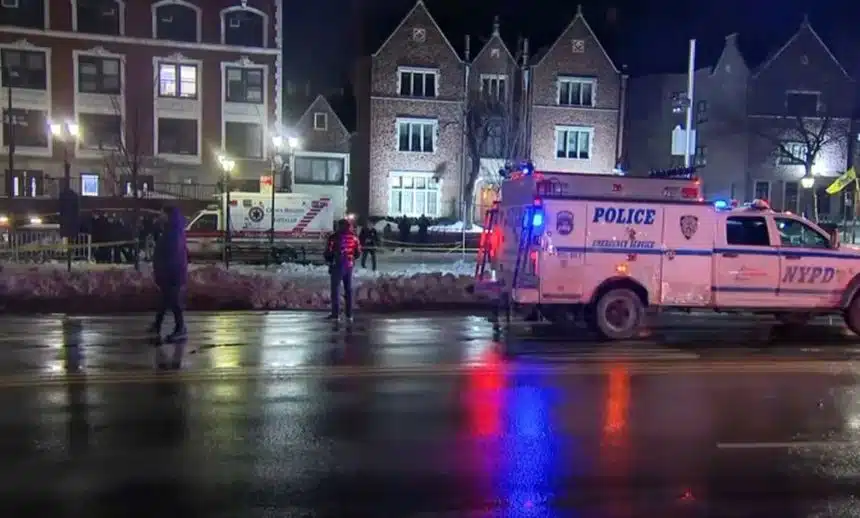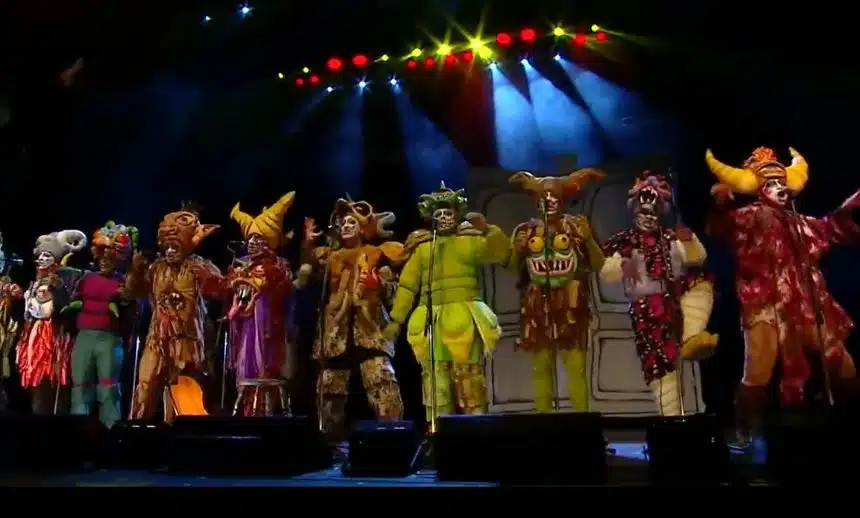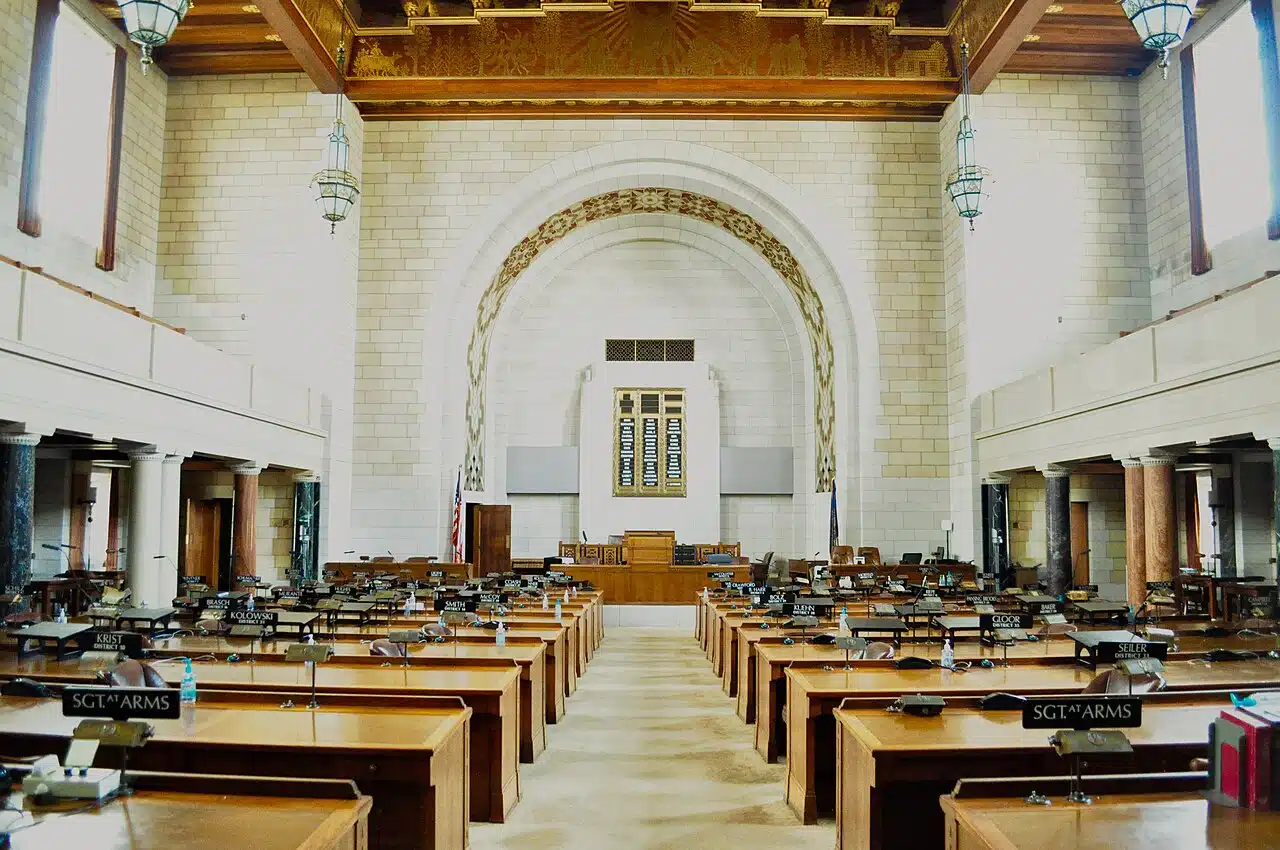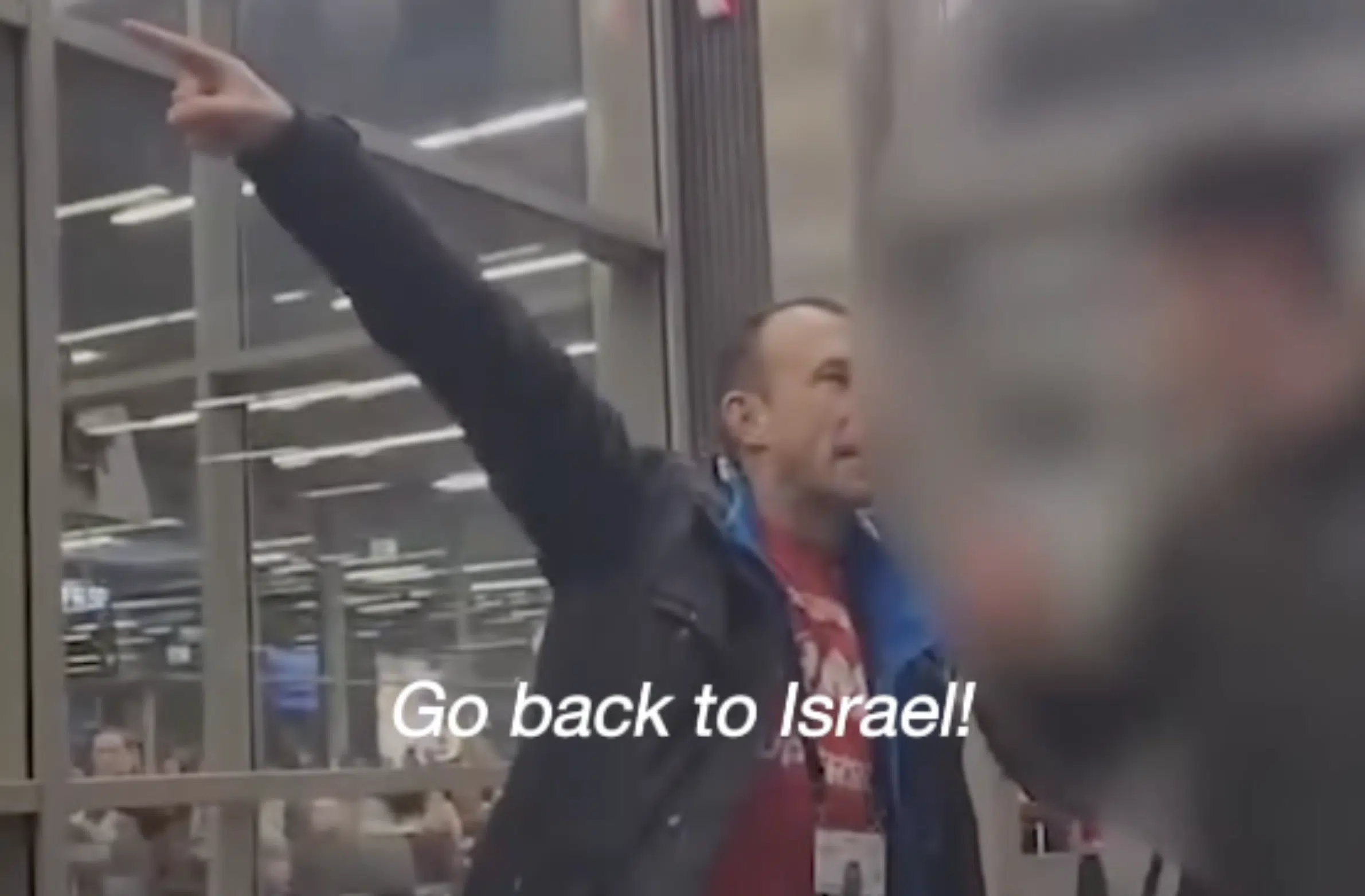
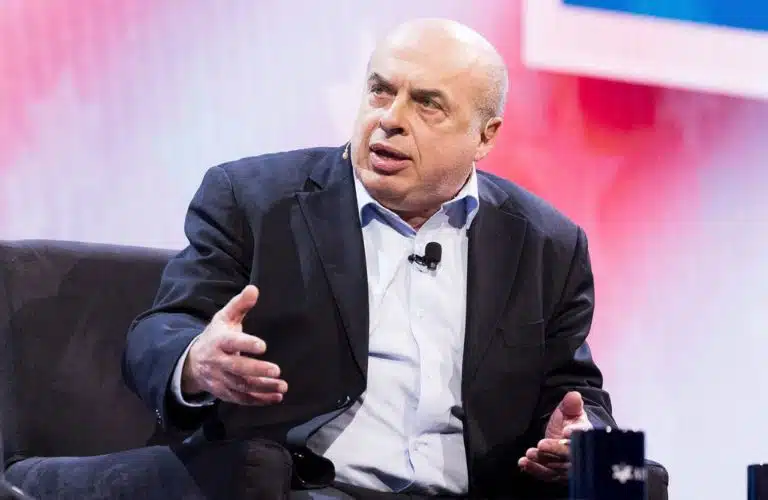
Human Rights Icon and CAM Advisory Board Chair Natan Sharansky Opens Up in Reddit ‘Ask Me Anything’ Session
Combat Antisemitism Movement (CAM) Advisory Board Chairman Natan Sharanksy took questions this week in an “Ask Me Anything” session on the Reddit social media platform.
The human rights icon shared his insights on a broad range of issues, including the rise of contemporary antisemitism, the state of Israel-Diaspora Jewry relations, and the ongoing Russia-Ukraine war, among others, as well as his love for his family and his passion for the game of chess.
As a young man, Sharansky — who was born in Ukraine when it was part of the USSR — became a leader of the refusenik movement, fighting for the right of persecuted Soviet Jews to emigrate. He was ultimately arrested by the KBG and tried and convicted on false charges of treason and espionage.
Sharansky was freed in a prisoner exchange in 1986, after nine years of brutal imprisonment. He immediately moved to Israel, where he ended up founding a political party to promote the interests of Jews from the former Soviet Union.
After a decade as a Knesset member and government minister, he left politics and shifted his attention to nonprofit work and the fight against antisemitism.
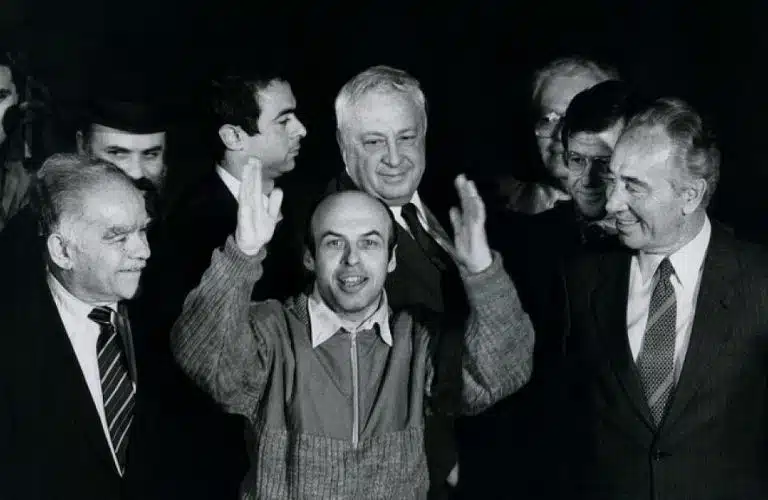
A sample of Sharansky’s Reddit responses can be viewed below:
The questions and answers have been edited for space and clarity.
Who serves as a role model to you?
“Two people: King David and my wife.“
What is your favorite thing about being Jewish?
“To not agree with anything and to always argue. Just like in the Talmud, there is never an end to the argument.”
Do you still enjoy a game of chess?
“I enjoy it greatly. I don’t have much time for it, but the advantage of today is that with the help of the computer you can always find someone at your level all over the world to play with.”
What is the accomplishment you are most proud of?
“Eight grandchildren! After all those years when we didn’t know if we would have time to have children, to have eight grandchildren is great. But the one accomplishment that I didn’t succeed in was to be the world champion in chess. When I was ten years old, that was my dream.”
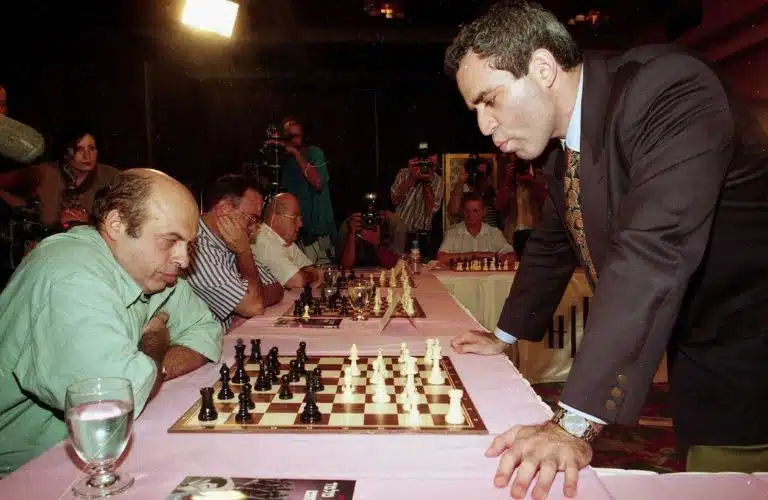
What should be done to raise awareness of rising antisemitism globally?
“Everyone should remember that antisemitism starts with Jews, but never finishes there. So it’s really in everyone’s best interest, especially those who are interested in human rights in the development of civil society. It has to be at the top of the agenda of those democratic countries that antisemitism is on the rise. And unfortunately, partially because of the influence of Islamic extremism, but also because of progressive theories which undermine the basic freedom of speech and other freedoms, it’s an easy atmosphere for antisemitism to rise. So I believe it should be top priority for the free countries.”
What can I, as an average American Jew, do to combat antisemitism?
“First of all, as I always say to the young people who we are sending to American universities and other places, your first goal is not to convince your enemies that we are better than they think, but to convince Jews that they have nothing to be ashamed of. To the contrary, they should be proud of their Jewish identity. So first of all, to be proud of your identity. And second, try to find as many friends with whom you have mutual agendas. There are so many democratic dissidents all over the world who can be natural partners of ours and we have to build bridges with them.”
What is the best way for non-Jews to fight antisemitism?
“Fight antisemitism where you see it and on every campus today in America. 20 years ago, I told [then-Israeli Prime Minister] Ariel Sharon that the main battle for the future of Jewish people was going to be on American campuses. And on every campus, if our non-Jewish friends will actively counter attack and resist the attempt to demonize and delegitimize the State of Israel, that will be a very important and huge contribution. So you don’t have to go very far. Start on your own campus, in your own organization, or where you work. And you’ll find a lot of things to do to correct and to express solidarity with your Jewish colleagues.”
How does antisemitism impact societies around the world?
“Antisemitism starts with Jews but it never finishes there, and the society of hatred that it needs to prosper is a society which in the end deprives people of their right of freedom of speech, freedom of expression, of freedom or religion, and so many more freedoms. So really, antisemitism is the early warning for a society that is moving in the wrong direction.”
What can American Jews do to ensure their children maintain a Jewish identity?
“First of all, to live life in connection to Jewish family, community, and your history, and to make sure that your children spend as much time as possible in Israel, in Jewish summer camps, and different Jewish programs. However, the programs must be very interesting and the easiest way to make it interesting is to go to Israel because it is so exciting, so interesting, so easy to feel your connection to thousands of years of our history. Even a short trip to Israel, it doesn’t have to be long.”
How can the seemingly growing divide between Israeli Jews and Diaspora Jews be addressed?
“It’s true that polarization is happening all over the world. We see unbelievable polarization in America, in Europe, and also a little bit less, but still a very polarized society in Israel. And this polarization also influences other relations between the Diaspora and Israel. I cannot blame one side. I think both sides have to make some major efforts to recognize the legitimate needs of the other side. World Jewry has to do a better job of recognizing the security restrictions of Israel, while Israel has to recognize that it’s absolutely legitimate and even desirable that there exists different types and streams of Judaism in the Diaspora.”
What cause can all Jews rally around today?
“‘Tikkun Olam’ is something that inspired all of us Jews, to see the world as being more just, more free, and more equal. I must say it’s very good that the young Jews are dreaming about a better world. If you are not dreaming, you are probably not Jewish. But you have to remember that to change the world you need a lot of energy and a lot of courage. There is no other source of it except from your identity from the feeling that your people and your community and your history are behind you. The cause of survival of the Jewish people and being an example for all the world is a great cause, but it all starts from feeling that you are part of this Jewish family and strengthening this Jewish connection.”
What are your thoughts on the Russia-Ukraine war being compared to the Israeli-Palestinian conflict?
“It’s sometimes difficult for Jews to believe that there can be big international events that are not connected to Jews or antisemitism. But the fight between Russia and Ukraine, or rather, the barbaric intervention of Russia against Ukraine, has nothing to do with Jews. In fact, the station of the Jews before the war in both countries was not bad. [Russian President Vladimir] Putin is an awful dictator but maybe one of the first leaders in the 2,000-year history of Russia who’s very sympathetic to Jews. And [Ukrainian President Volodymyr] Zelensky himself is Jewish. And the fact that in the free elections, with a lot of competition, Ukrainian people voted for Zelensky says something.”
“So it’s not antisemitism. Rather, it’s the pure ambition of Putin to rebuild the Russian empire. He sees himself as someone who is following in the steps of Peter the Great, Catherine the Great, and Stalin. That’s what made him launch the war against Chechnya, Georgia, and now Ukraine. As for Ukraine, it’s fighting for its right to be a free nation and for its right to be a nation.”
“In this way, Ukraine is bringing back nationalism as a good word. The word ‘nationalism’ became almost like a curse in the modern world, but Ukraine is showing how nationalism can be a great defense or tool against the struggle for freedom. And the struggle for Putin isn’t only against Ukraine, it’s an attempt to change the rules on which the free world is based. And that’s why it’s very important for the free world to express their solidarity and give support [to Ukraine].”
The full Reddit “Ask Me Anything” session with Natan Sharansky is available here.

